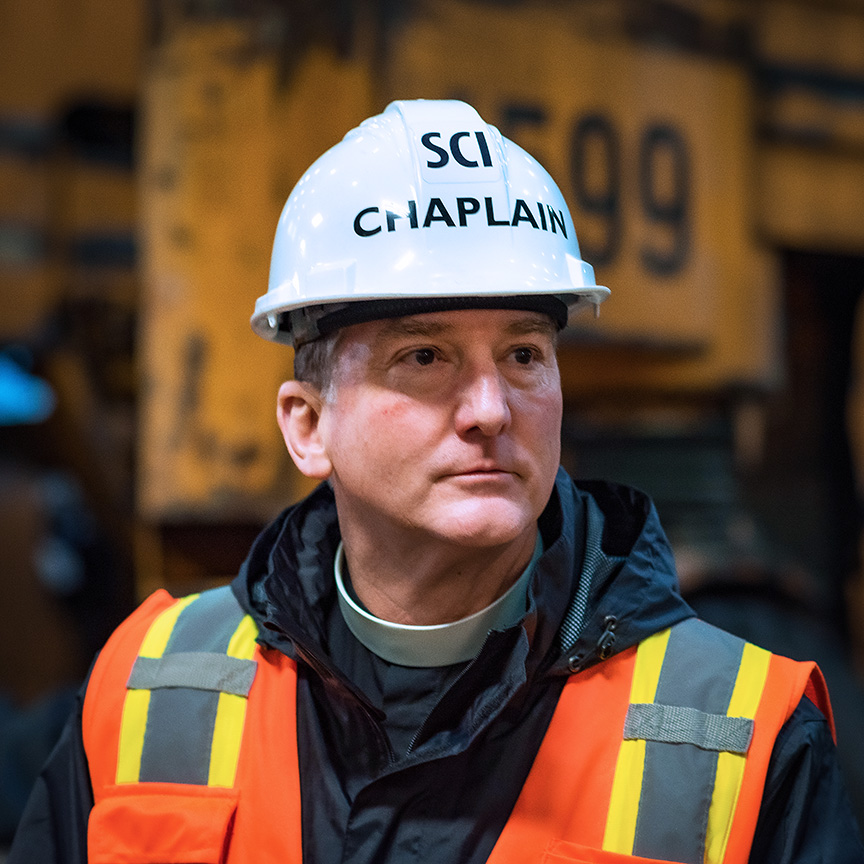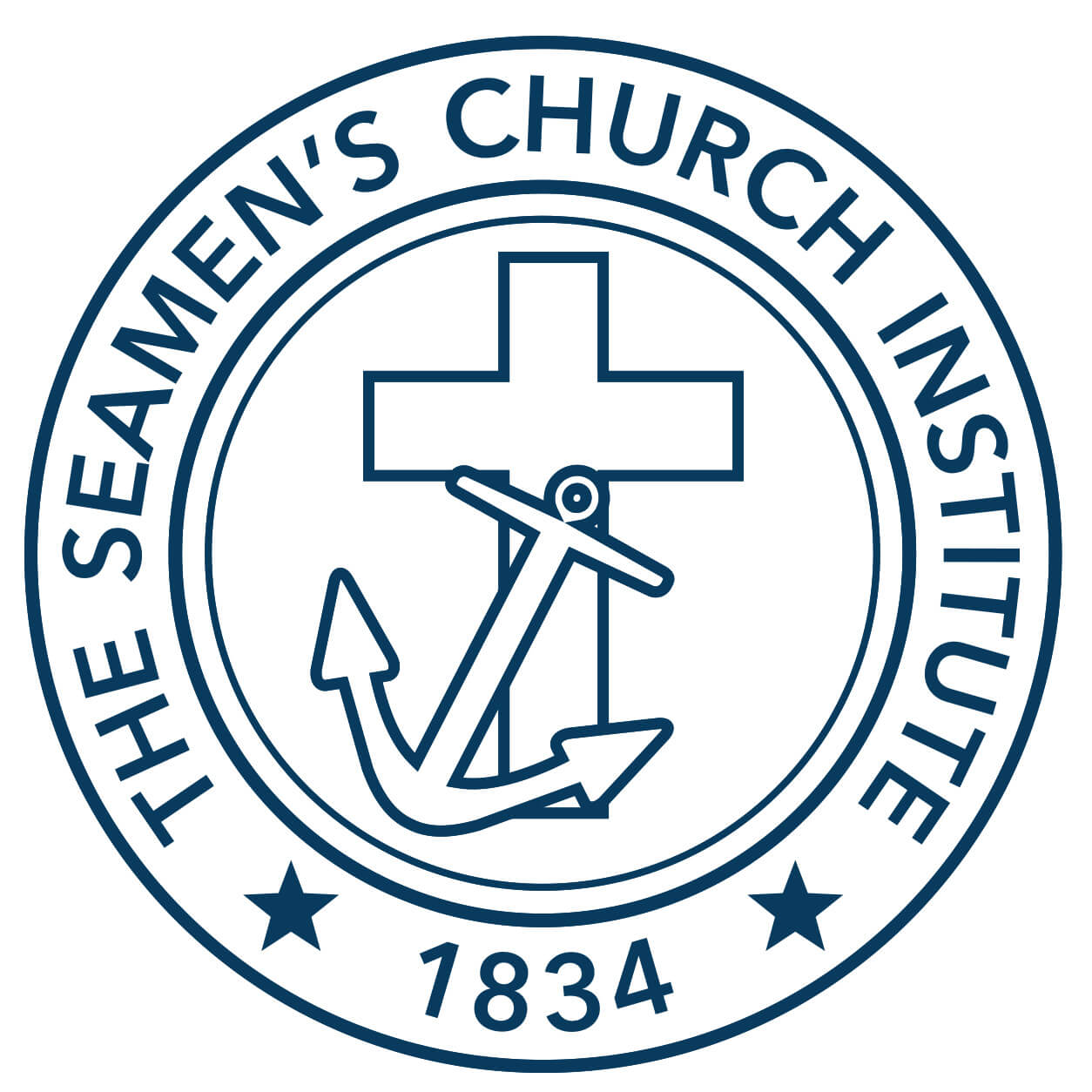ICMA Leadership Meets in Antwerp

The Benefits of SCI’s Partnership with Global Mariner Welfare Organizations.

In September 2023, ICMA’s charity trustees and general membership met in Antwerp, Belgium for the association’s Annual General Meeting. The site for these meetings was the architecturally stunning Havenhuis, or Port House, located in the heart of the bustling port. Antwerp, the diamond capital of the world, is one of the largest commercial ports in Europe— second only to neighboring Rotterdam—with 15,000 ships and 60,000 inland barges arriving annually. The Havenhuis, originally a 19th century fire station, is now a striking gem designed by Iraqi born-British architect Zaha Hadid, who died shortly before its completion in 2016. It is topped by a large ship-like structure that floats above the building.
–
In addition to its size and scale, the Port of Antwerp has one of the best examples of a successful ecumenical seafarer welfare center with chaplains from various organizations working collaboratively under one roof: Stella Maris (Roman Catholic), German Seamen’s Mission (Evangelical Church of Germany), Mission to Seafarers (Church of England), and, until recently, Sailors’ Society (Protestant/Free Church). Each organization had full-time chaplains based out of the Antwerp Seafarer Welfare Center. By working together, and by setting aside doctrinal differences for the greater good of serving seafarers, this center represents what is best about ICMA’s vision and mission.

As an organization, ICMA was founded to facilitate ecumenical partnerships among the many Christian organizations around the globe that are involved in maritime ministry and chaplaincy. At its first meeting, which was held in Rotterdam in 1969, over 100 delegates representing 52 organizations gathered to discuss both the changing face of maritime ministry and the need to work collaboratively. While now an international organization headquartered in London, ICMA’s founding and roots can be traced to the U.S. and to the body now known as NAMMA, or the North American Maritime Ministry Association. The Seamen’s Church Institute (SCI) was instrumental in calling together the many separate entities that ministered to seafarers in the United States and Canada, beginning in 1897 with an event hosted by SCI in lower Manhattan, which met again in 1910 and 1930. The National Association of Seamen’s Agencies became an official body in 1932. Several name changes later, this agency is now known as NAMMA.
The meeting in Antwerp highlighted the powerful unity of the 27 maritime ministry organizations…the partnership among agencies proves to be greater than the sum of its parts.
Given SCI’s long association with NAMMA and ICMA, how does SCI both strengthen and benefit from these associations? For decades, SCI was the single largest seafarer welfare organization in North America and operated various SCI subsidiaries throughout the U.S. on behalf of the National Episcopal Church. Today, SCI remains North America’s largest and most comprehensive seafarer and mariner service agency offering vessel visits and counseling, crisis response, continuing maritime education and training, and advancing mariner advocacy and seafarer rights. We undertake this work to live out our mission of improving mariners’ lives and well-being 24/7/365. Our Center for Mariner Advocacy (formerly Seafarers’ Rights) provides the only pro-bono legal counsel for mariners and maritime chaplains, both in the U.S. and globally. As such, we offer legal support to NAMMA chaplains throughout North America and teach at the annual Introduction to Seafarer Welfare and Maritime Chaplaincy training program. With ICMA, SCI provides staffing and thought leadership for its delegations to the International Labour Organization and International Maritime Organization. SCI, in turn, benefits from the network of independent chaplains within North America and the larger associations around the world.
The meeting in Antwerp highlighted the powerful unity of the 27 maritime ministry organizations that comprise ICMA’s membership in addressing seafarer welfare. In this way, the partnership among agencies proves to be greater than the sum of its parts.The representatives in attendance examined and assessed ICMA’s efforts, which encompassed issues like crew changes, COVID vaccinations, shore leave, and chaplain training programs conducted in Houston, Manila, and Hamburg. The review also extended to the numerous gatherings of the ILO and IMO, as well as the recently established Joint ILO-IMO Tripartite Working Group dedicated to addressing seafarer concerns and the human factor. Over the decades, ICMA’s work has changed to contend with the most pressing issues and needs for seafarer welfare, whether it be seafarer shore leave in the aftermath of 9/11, maritime piracy off the coasts of Africa, abandonment of ships at sea and in port, stowaways, and more recently, the worldwide COVID-19 pandemic and the war in Ukraine. Through all these changes, SCI has been an effective voice within ICMA, while simultaneously being more effective in our own work and mission because of our association with ICMA. Indeed, the whole is stronger than the sum of its parts.
